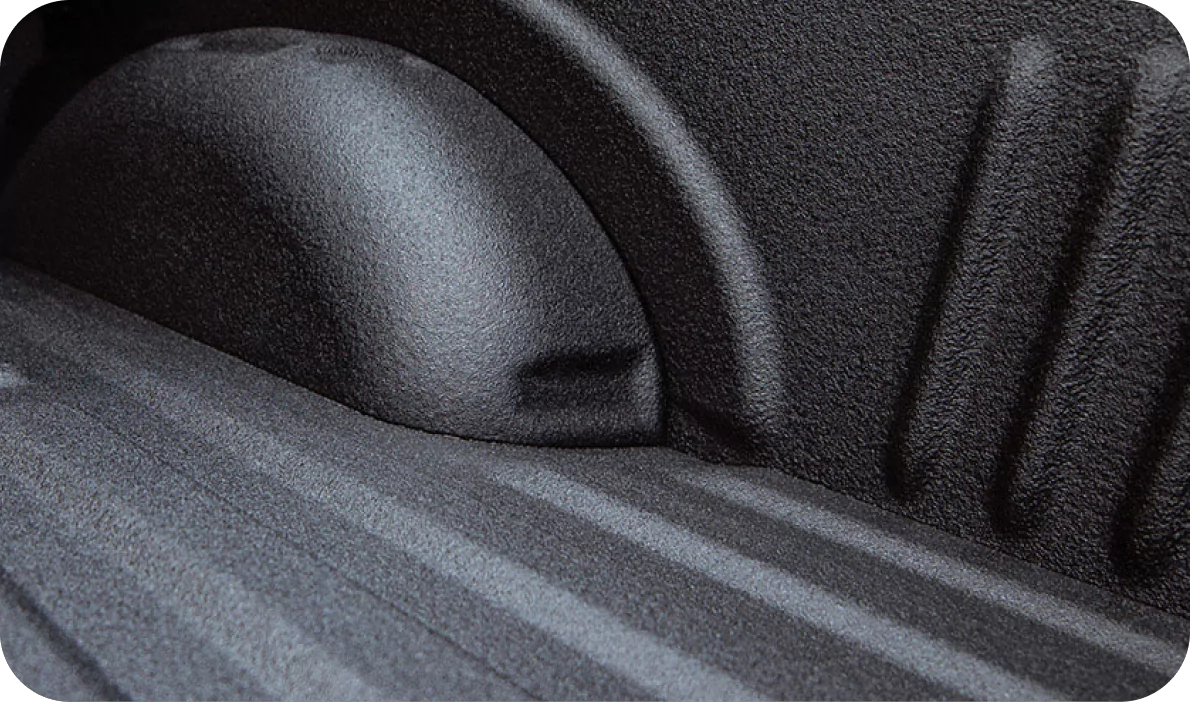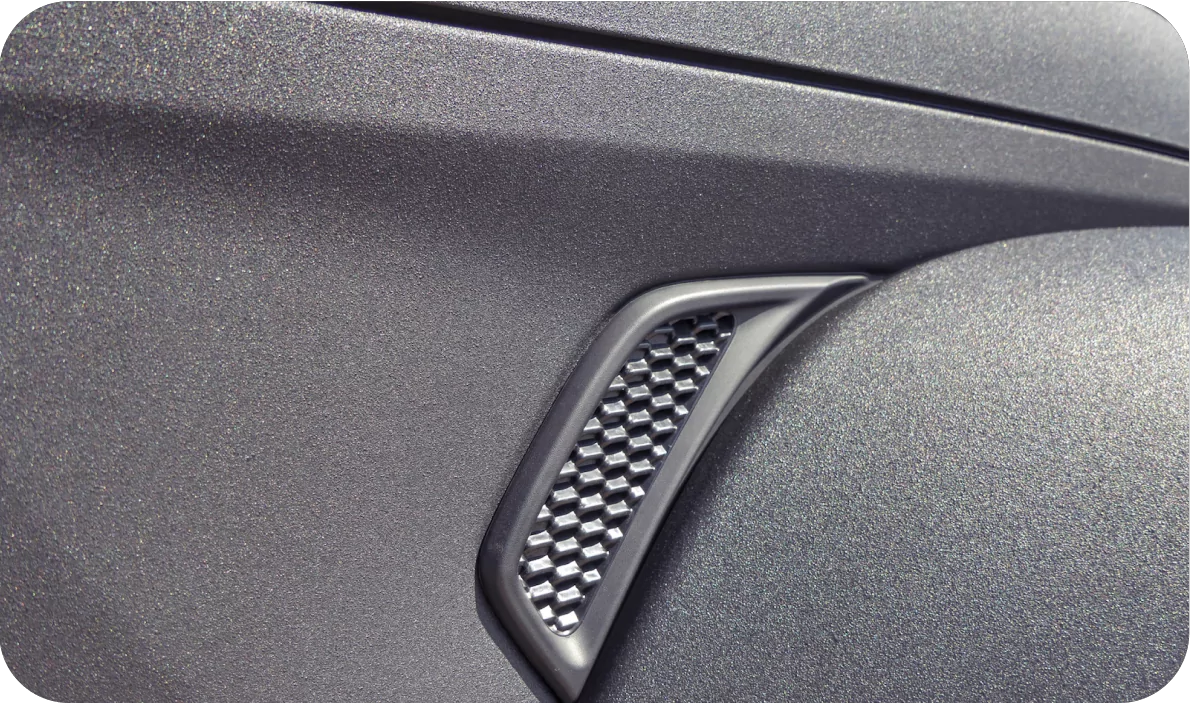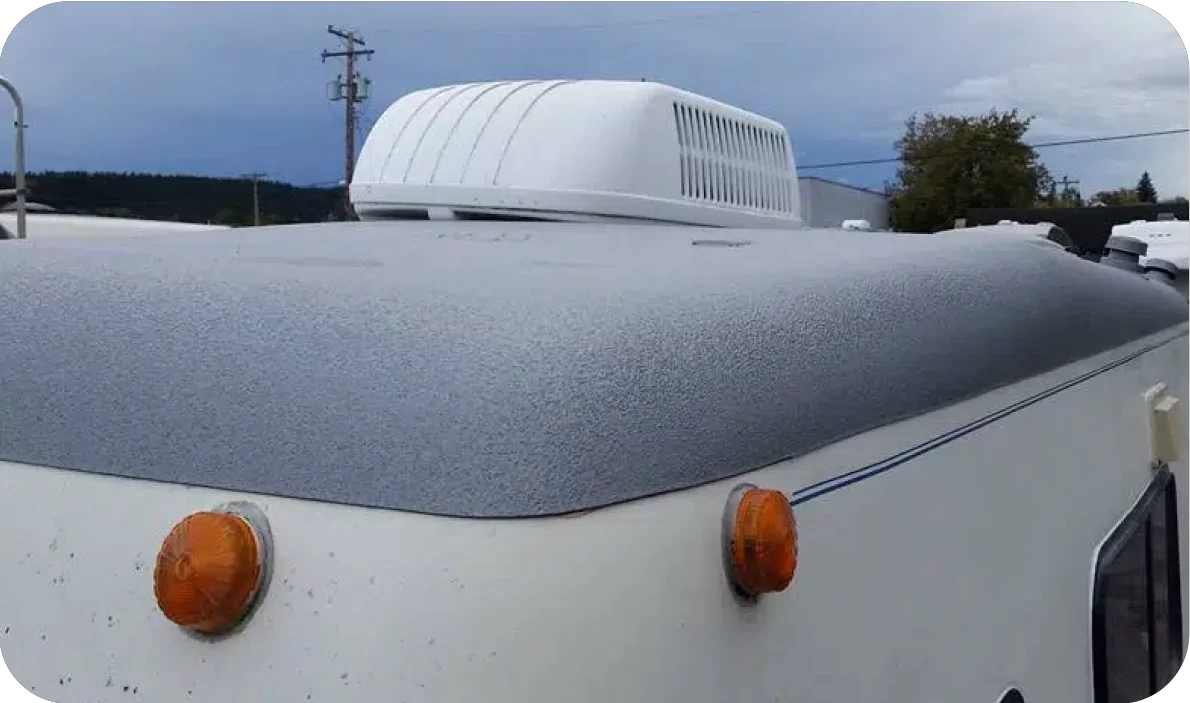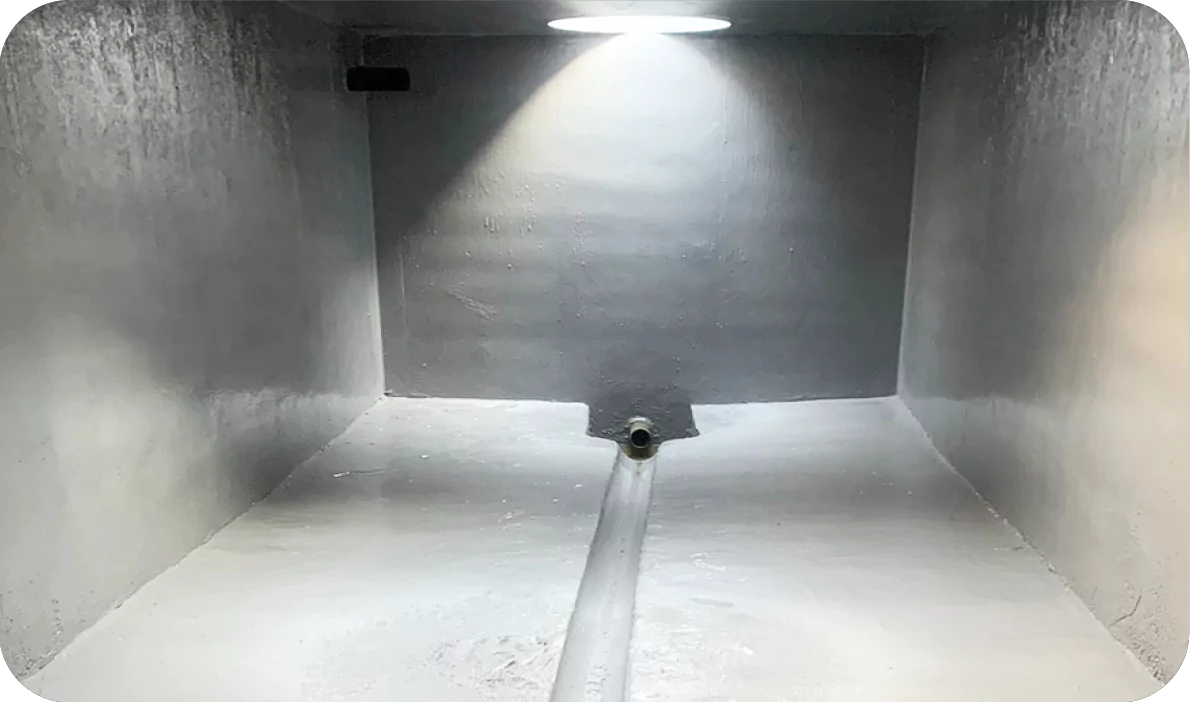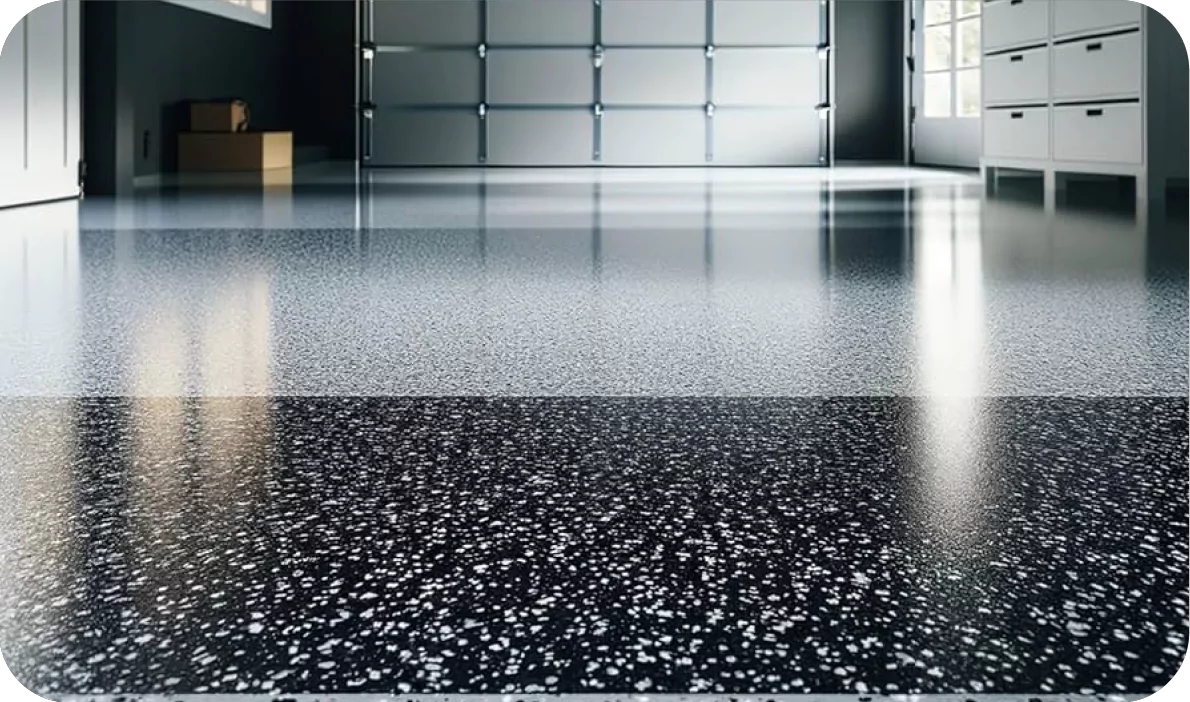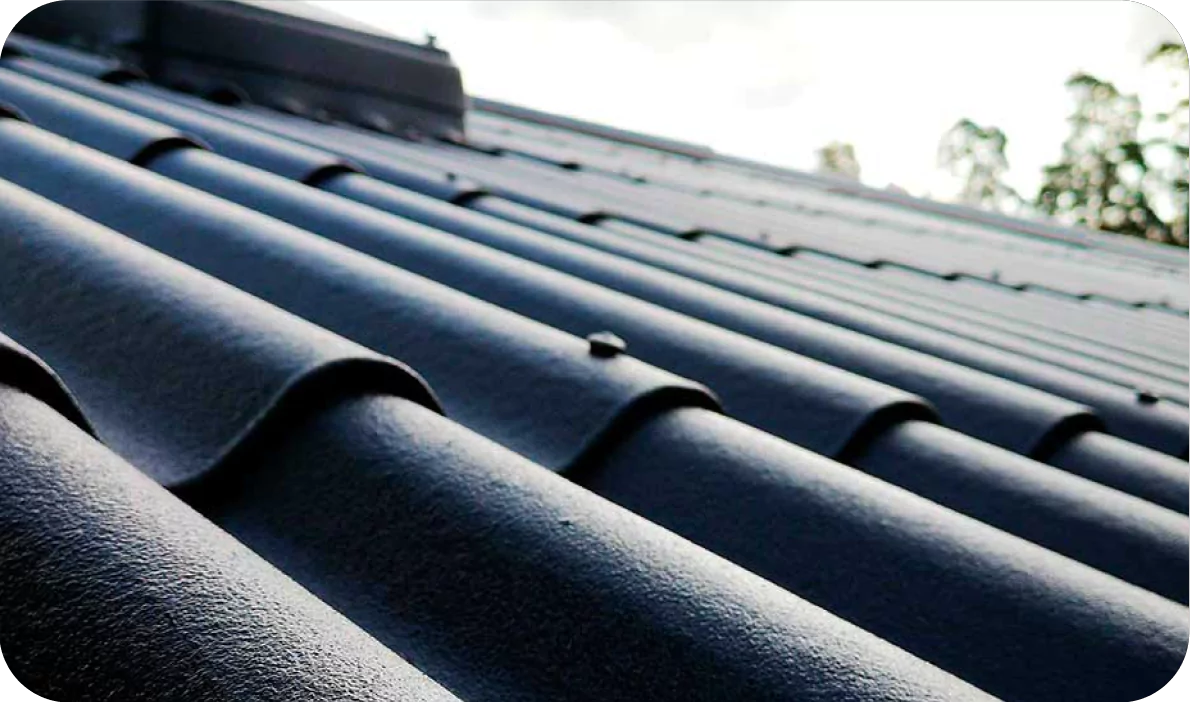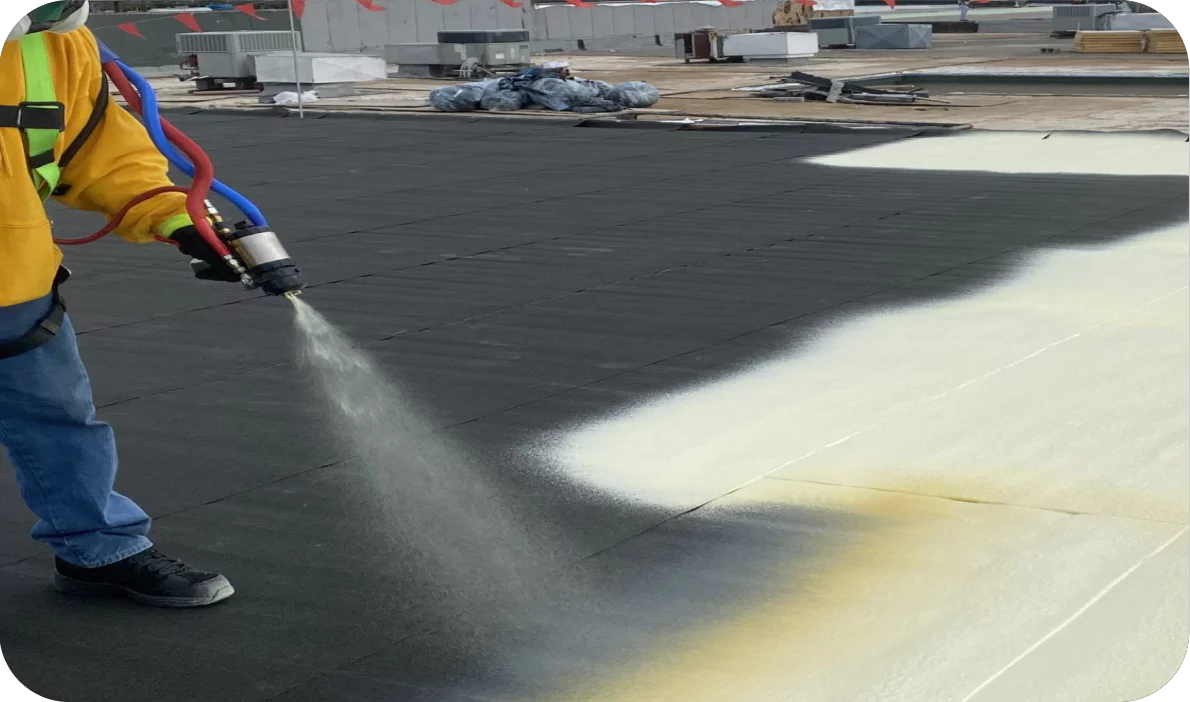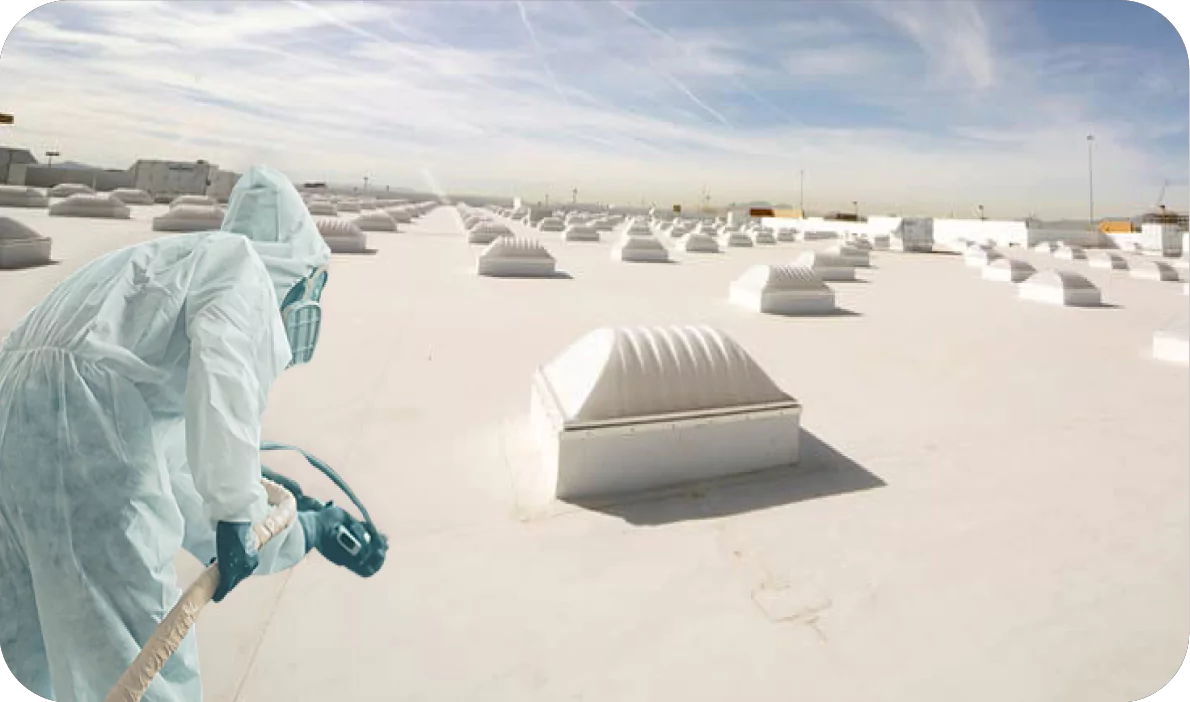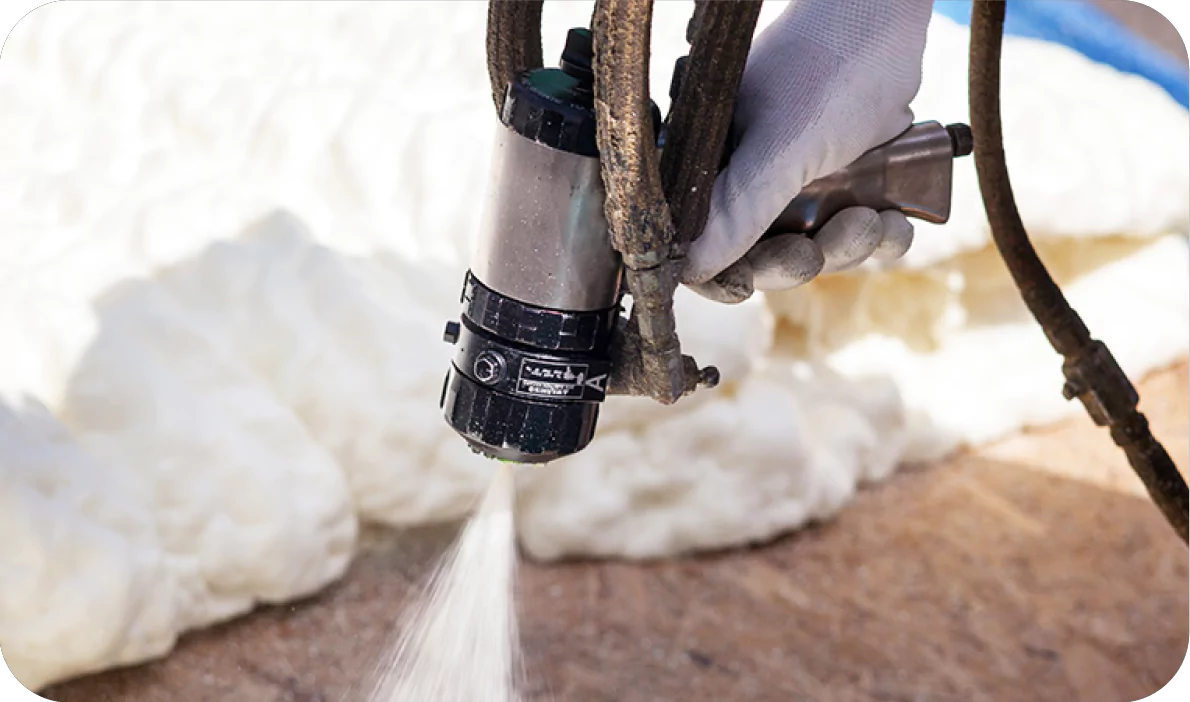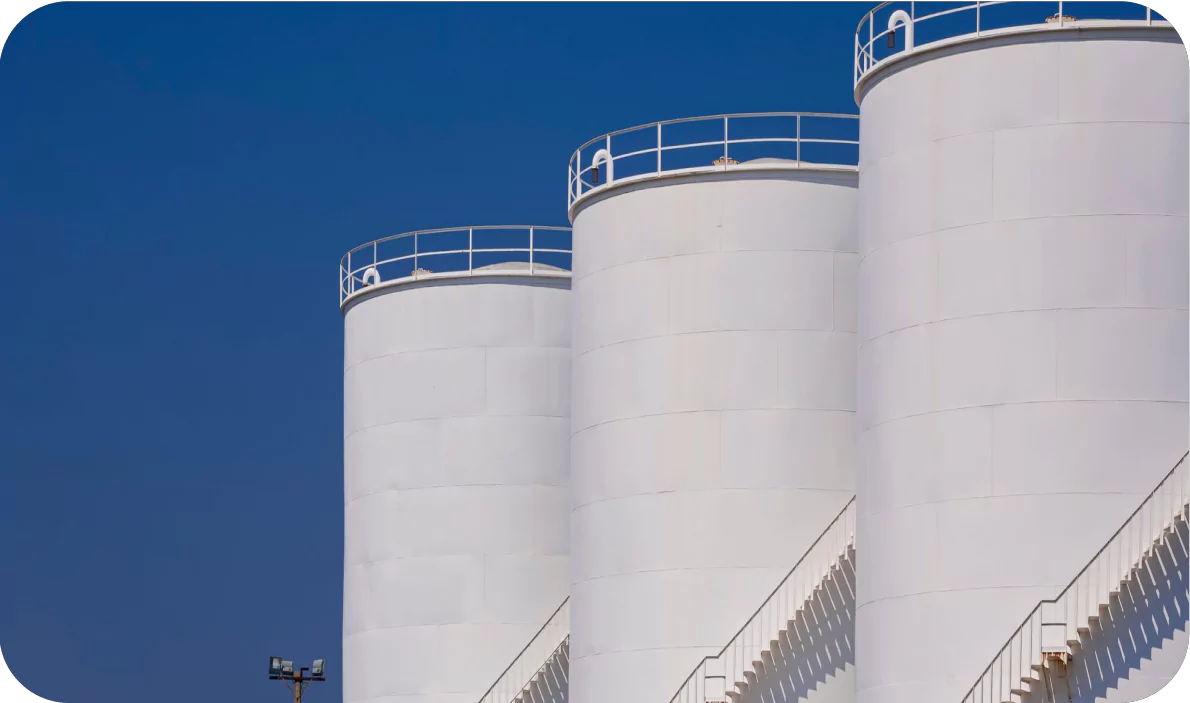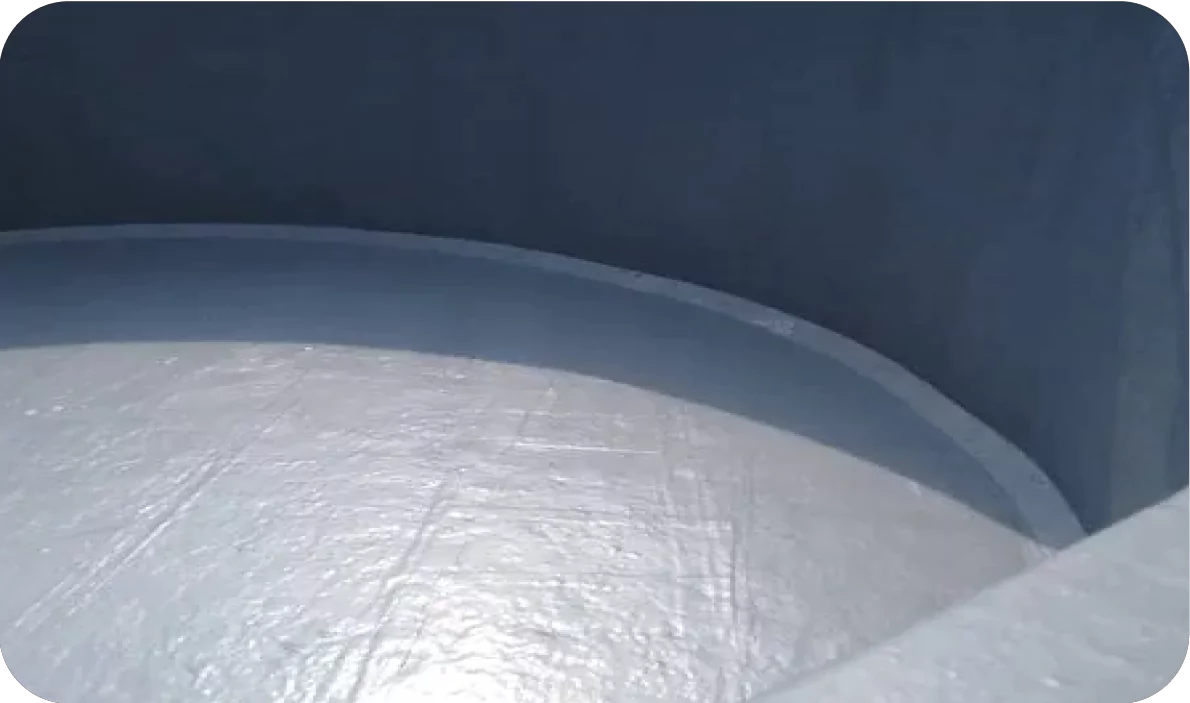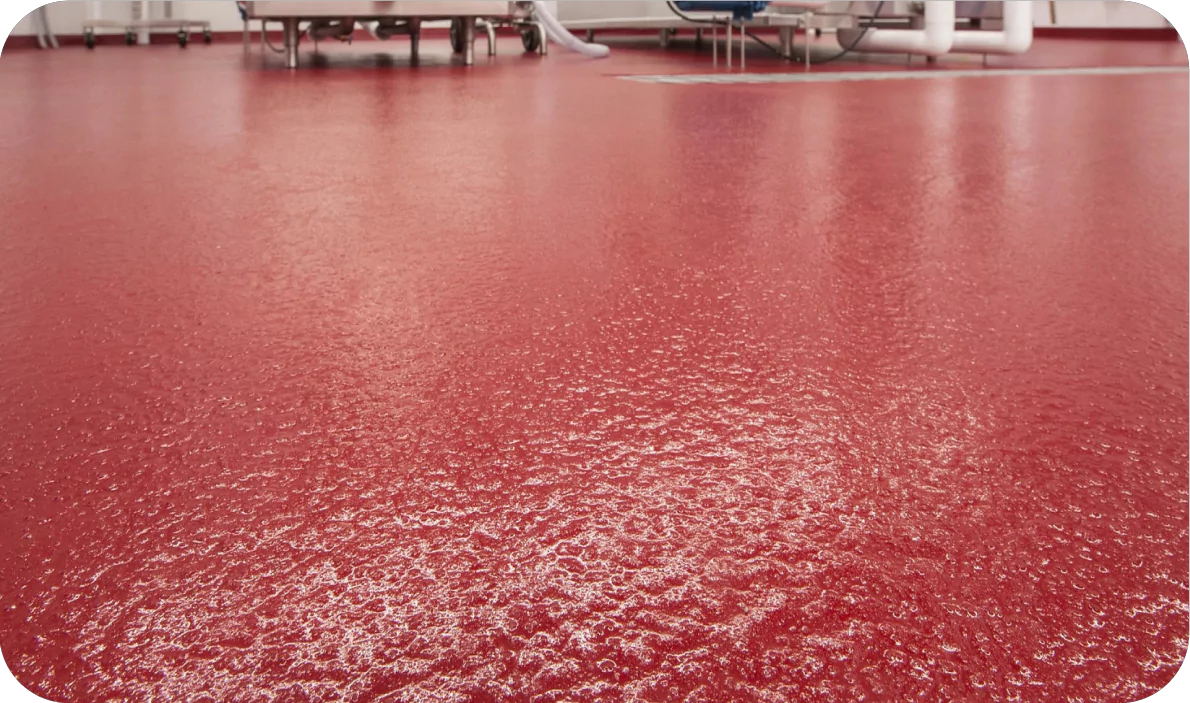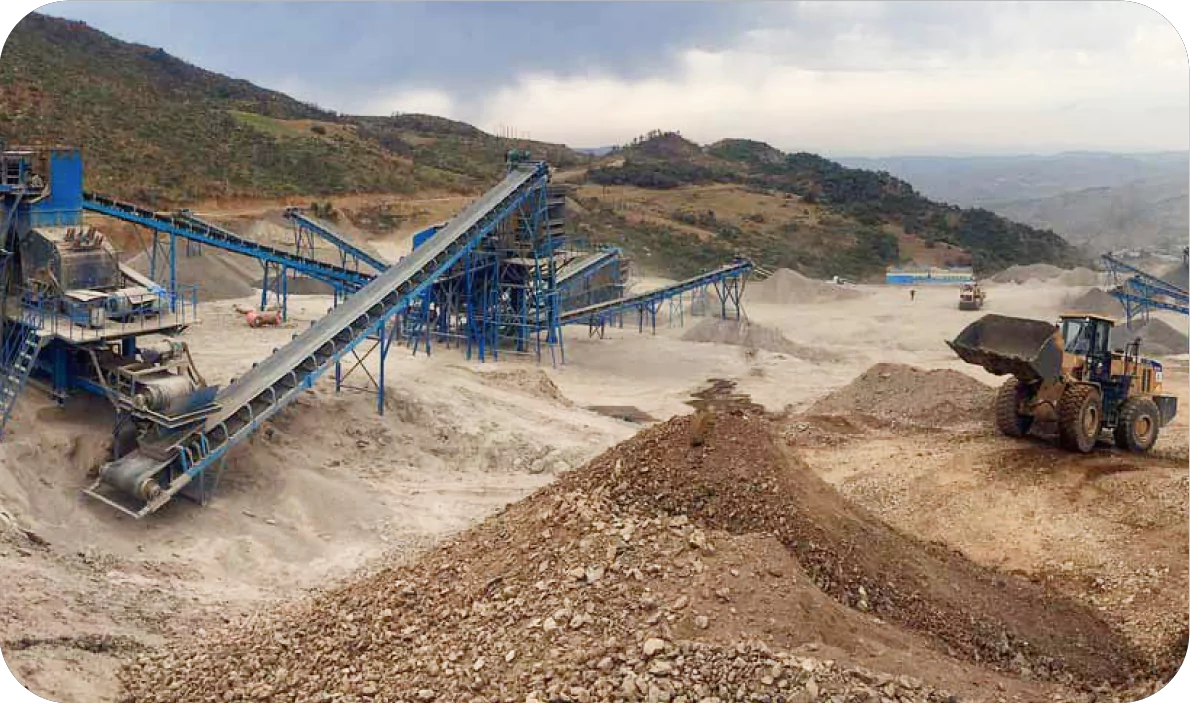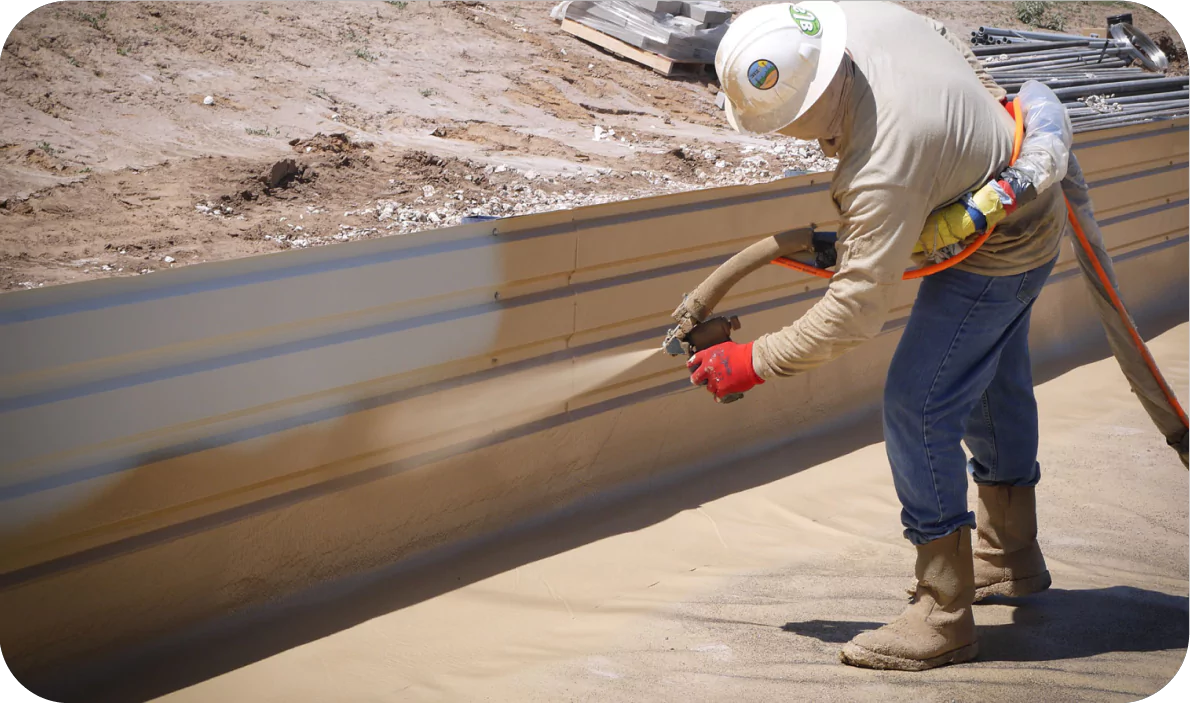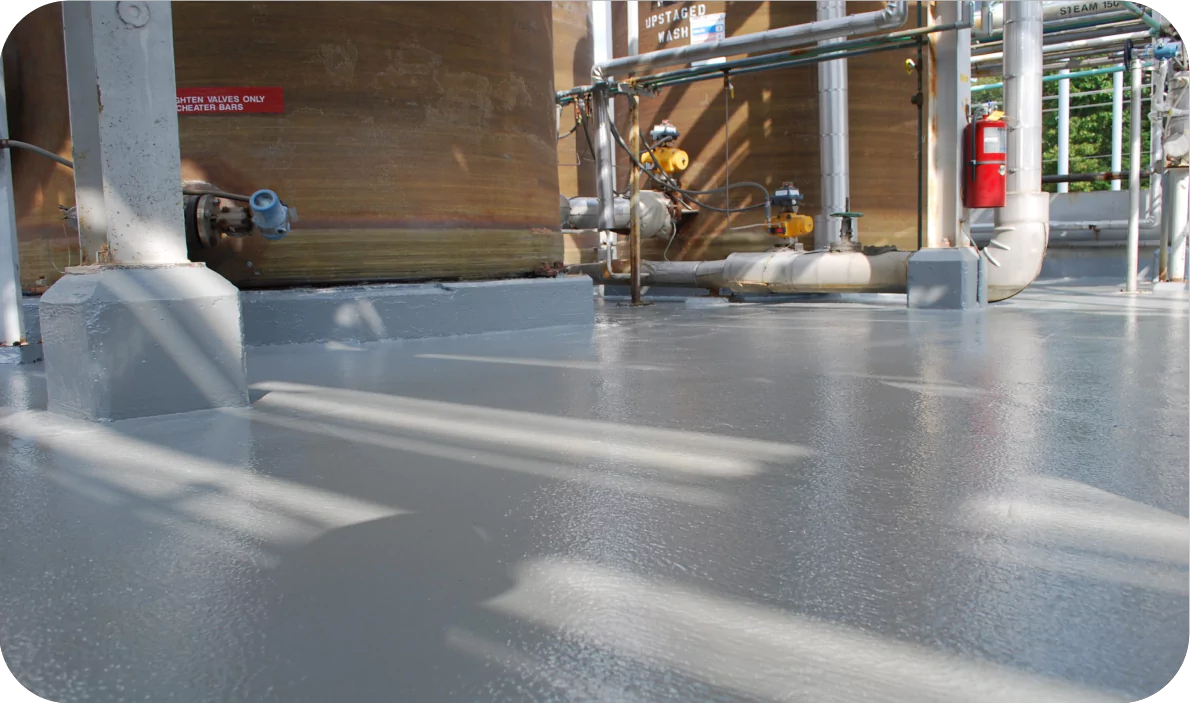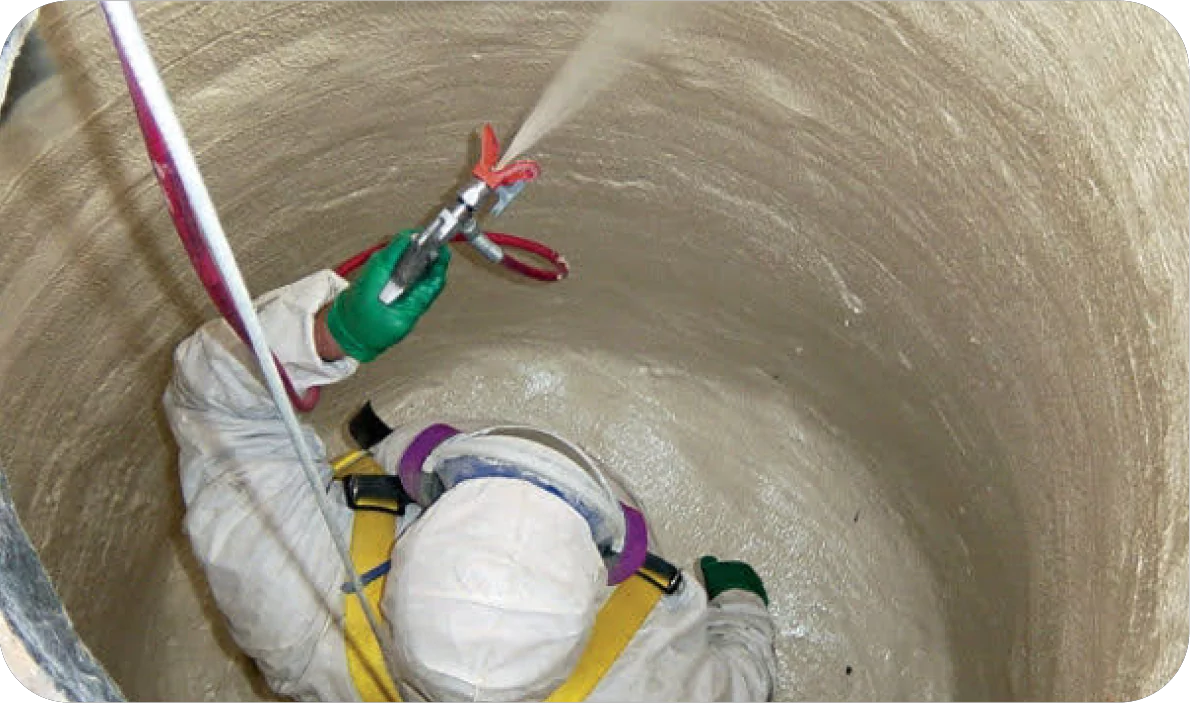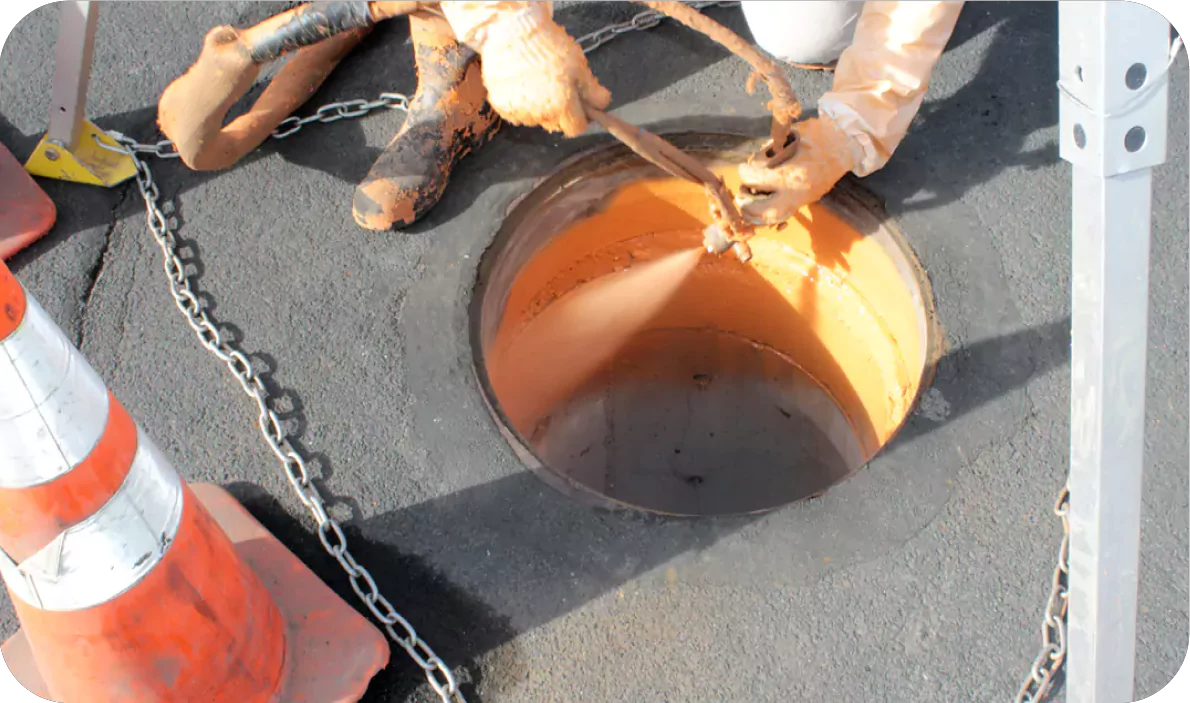WHAT IS POLYURETHANE SPRAY FOAM INSULATION?
Spray Polyurethane Foam Insulation (SPF) is lightweight, rigid, flexible, wind-resistant, and highly effective in extreme weather and temperatures. SPF insulation is the most efficient commercially available insulation material. It has the highest R-value per square inch.
.
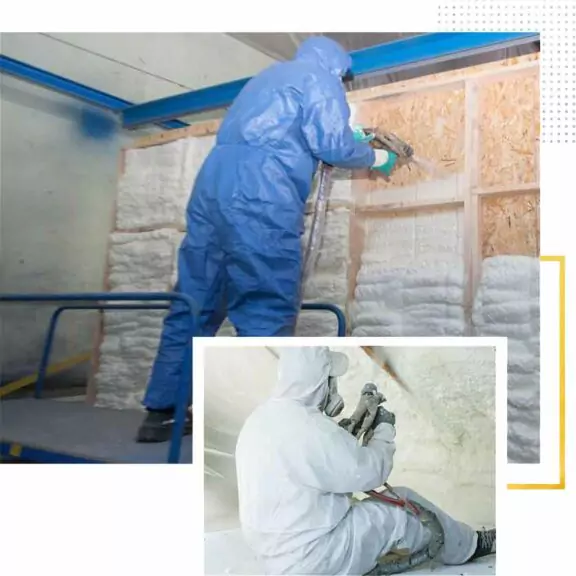
ULTRA EFFECIENCY
The building envelope comprises several components that protect against uncontrolled heat, air, or moisture movements.
It is not possible to measure the true performance of your building envelope by the R-value of insulation. It would help if you also considered air movement and moisture control.
SPF meets all of these requirements in new construction and improvements to existing structures.
SPECIALITY APPLICATIONS
Tanks and vessels
Spray Polyurethane Foam can be used for various purposes, including tanks and vessels. SPF is a great solution to cold vessel insulation for wine, chemicals, and even soft drinks. SPF is great for products that require controlled temperatures. These insulations are ideal for SPF systems because of their superior durability and ease of use.
Spray polyurethane foam can be used to insulation hot or warm vessels. SPF fluid-applied systems with protective coatings provide superior performance if there is a need for temperature control or viscosity of chemicals and other liquids.
Sealants
Polyurethane foam sealant can be used to enhance the “envelope” of your building’s outer walls, ceilings, windows, floors, and roof. This sealant is cost-effective and can improve your home’s energy efficiency as well as comfort.
- Both thermal and sound insulation
- Seal Windows and Doors
- Blocks Insects & Rodents
One-Component
A single component foam is an economically and effectively insulating and sealing expanding plastic urethane foam. It is used to seal cracks, seams, and small gaps.
Foam can expand up to 2-3 times its original size and cure by reacting to the moisture (humidity) present in the air when it is dispensed? This polyurethane foam takes about 45 minutes to an hour to cure under 50% relative humidity. These materials are used primarily for air sealing, but they can also be insulated with R values (aged) in the range of 3.5 to 5 inches.
Two-Component
Polyurethane foams of two-component (or froth foam units) come in separate containers. They are suitable for large areas of spraying or filling in large gaps and voids. The tanks can be operated from an upright position. Two-Component Standard Foam can be used for sealing and insulation jobs. Two-Component Foam can be chemically cured. Each Foam pack contains both an “A” and “B” component. The foam “A” and its curing agents “B” can be mixed using the provided dispensing tool and cure faster than Single-Component Foam.
Two-component polyurethane foams with two components expand faster when they are chemically cured. They are suitable for spray-on applications and filling cavities, and filling holes. They have an R-value (aged) of about 6.0 inches.
Adhesives
Spray polyurethane foam can be used in commercial roofing and manufactured housing industries as an adhesive.
SPF is used for adhering EPDM membranes and board stock insulation to different roofing substrates. The SPF is used to adhere the board stock to roof decks and then the membrane to the board stock. Spray-applied SPF reduces labor and time. It provides insulation and a strong bond, making it an excellent choice for wind uplift ratings.
SPF can also be used in manufactured housing. This adhesive is used for attaching ceiling panels to structural framing. This adhesive offers many benefits to the builder: speed, increased strength, lower costs, and other advantages.
Cold Storage
Spray applied polyurethane foam insulation (SPF) can affect the performance of cold storage facilities. This is due to the interaction between the components of the building structure and the atmosphere outside. A successful cold storage facility will require a well-designed structure, detailed specifications, contractor review, material selection, and the compatibility and placement of all components.
Discuss all aspects of cold storage with the contractor/designer to get written confirmation of their agreement/opinion. This includes but is not limited to material selection, moisture vapor transmission, load design, and expansion joints. Flashing details and floor, wall, and ceiling preparations, as well as pull-down schedules.
Cold Storage Facility – ArmorThane
Different types of cold storage facilities
The primary function of refrigerator warehouses is to store frozen or previously processed food at a constant temperature of between -40C (-40degF) and 10C (50degF). These warehouses are usually one-room buildings. You can store packaged goods on pallets and food racks.
Multi-functional structures process meats, poultry, and other food products. These plants are typically made up of multiple rooms with different functions, operating temperatures, and humidity conditions.
Multi-room distribution centers house packaged dry goods, frozen foods, and fresh produce. These centers can also contain specialty rooms like banana or ice cream holding areas.
You can convert existing facilities to another purpose, such as a cooler converted into a freezer or an addition to an existing building.
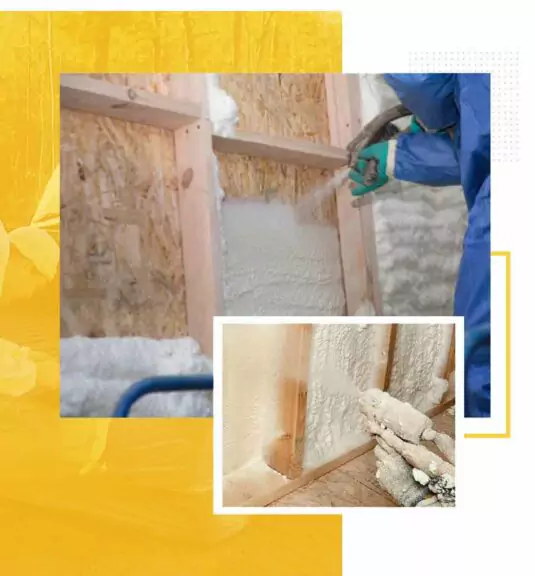
COMMERCIAL WALL INSULATION
Spray foam insulation may be the most efficient insulation method yet.
Benefits:
It is used to cover the interior of the wall panels of buildings. It has a very high R-value and has been shown in studies to increase steel and timber frame buildings’ strength significantly. In some cases, it has also been used to stop wind uplift from commercial roofing systems.
It can be used on the exterior of the building as a combined air and vapor barrier system. This is recognized according to American Air Barrier Association standards. It can be used below grade to insulate basements and foundations. It is free of VOCs and hydrocarbons, and it has been proven to be reliable over the past 20 years.
COMMERCIAL ROOFING
Spray polyurethane foam roofing (SPF) is a type of roofing that uses specially designed Foam. It is usually covered with an elastomeric layer (typically acrylic or silicone, or polyurethane) or an aggregate covering to protect it from ultraviolet rays.
Two liquid components are mixed at the spray gun by special equipment that sprays the SPF onto a substrate. In seconds, the mixed liquid expands to form a rigid foam plastic that chemically bonds to the surface. Spraying the Foam in 1/2 to 1 1/2 inch lifts allows the applicator to reach the desired thickness to fill low areas, create slopes, and provide insulation.
SPF is water-resistant due to its closed-cell structure. To prevent UV-induced surface degrading, it must be protected with elastomeric coatings and other coverings, such as aggregate. These coverings can be used to protect the system from moisture vapor transmission, enhance the aesthetics, increase the system’s impact and abrasion resistance, meet code requirements, and ensure non-flammability.
SPF roofing systems can adhere well to many substrates, including metal, wood, concrete, and built-up roofing (BUR). These systems are often used as a recovery roofing system because they add little weight to existing roofs and can create slopes to fill in low spots. Any recover roofing system should be specified with care. A structural engineer should inspect the roof deck and existing roof covering to ensure that it is suitable for SPF roofing.
Hail and wind-driven missiles such as tree limbs or broken roof tiles, metal flashing, etc., can damage the SPF roofing system. The SPF roofing system can be damaged by hail and wind-driven missiles (such as tree limbs, broken roof tile, metal flashing, etc.). This type of damage does not usually cause leaks and can be repaired without compromising long-term performance.
SPF roofing systems excel in the following conditions:
- Additional insulation may be required
- Extreme temperatures are possible
- There are many penetrations in the roof substrate
- Roof deck is a unique configuration
- High winds are likely to cause damage to the roof.
- It is important to use lightweight materials
- To ensure positive drainage, the slope must be included
These roofs are ideal for companies and organizations that own their buildings and pay their energy and maintenance costs. Click here to learn more about ArmorThane spray foam and learn how it can help you.
